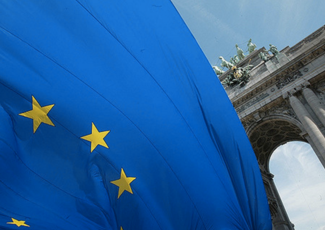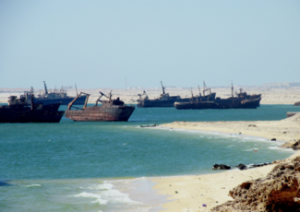The following piece was written for a forthcoming edition of the journal of Anti-Racism Network Ireland
The Irish experience of modernity has been rather unlike that of many of the other states with which we share our geographical location. Across most of North Western Europe, the period has been characterised by a sharp decline in the power of institutionalised religion, with nationalism largely taking its place as the era’s prime force of social control, cohesion, and destruction. Ireland, however, has followed a different path. While nationalism was clearly the engine driving the struggle for independence, it did not correspond to a decline in the role of religion. Indeed, from the mid-nineteenth century up until quite recently, the Catholic Church was in the ascendancy, acting as an unrivalled force of both political dominance and social regression. This highly unsettling interplay between systemic abuse and institutional nepotism has imbued contemporary Ireland with a well-founded distrust of organised religion.
So what might this trajectory imply today in terms of susceptibility to the most recent incarnation of European racism, namely anti-Muslim bigotry, particularly considering the liberal, secular veneers of legitimacy that it so often adopts?
On the one hand, a history of Irish anti-imperialist politics has left a legacy of anti-racist discourse and international solidarity within Republican quarters, which has at times seeped into broader public sentiment. This may partially explain the comparative absence of any serious far-right nationalist presence on the Irish political landscape, or at least the admirable determination to ensure that this remains the case. On the other hand however, a new domestic context of fervent anti-religiosity has fused neatly with an international climate that is overtly hostile to Islam and Muslims. Hence the high volume of instances of racist aggression on the streets of Ireland against those visibly identifiable as Muslim, as documented by Dr James Carr of the University of Limerick.[1] Despite the fact that the Muslims he interviewed for his research come from a diverse range of ethnic and national backgrounds, the vast majority (81%) of those that had been targets of racist hostility were made to feel that their religious identity was the primary reason for their abuse. The racialisation of Muslims familiar from other Western contexts is thus also alive and well in Ireland.
The ongoing case of the Irish youth Ibrahim Halawa offers a further insight into how this new form of racism in Ireland masquerades behind a rhetoric of cultural superiority and secular values. If the comment sections of Irish media outlets are anything to go by, there are many who are less than sympathetic to the plight of this Irish citizen who has been subject to cruel and degrading treatment while imprisoned without trial in an Egyptian jail. When the point is made in such fora that the public reaction would be rather different if he were a white Irish citizen, the response will often entail an indignant rejection of any insinuation of racism, focusing instead on Halawa’s family ties and the fact that he had participated in a Muslim Brotherhood demonstration in Egypt prior to his arrest.
The justificatory argument then is often that this has nothing to do with skin colour and everything to do with his and his family’s religious and political beliefs, and the assumed threat that they pose to ‘our’ way of life. Sadly, the fact that it is no longer fashionable to publicly identify oneself as racist does not mean that racists have ceased to exist. So it would be folly to believe that ethnicity does not have an insidious role to play in influencing the tone of such discussions, not to mention diplomatic priorities. However, even if we are to accept this premise, we are still left with an irrational hysteria that is completely divorced from, and effectively obfuscates, the facts and context of Halawa’s case.
It is worth briefly recalling this context, as it may cast the aforementioned discussions in an interesting light. In July 2013, the Egyptian army ousted the democratically elected Muslim Brotherhood president Mohammed Morsi, following a series of popular protests against Islamist rule and moves made by Morsi to consolidate his power. What followed was a wave of repression widely acknowledged to be the worst in the country’s history, entailing mass death sentences, arrests, torture, and state-sanctioned murder of political opponents.[2] On 14 August 2013, the week prior to Halawa’s arrest, the Egyptian security forces carried out what the UN Human Rights Council described as the worst mass killing in Egyptian history,[3] when they massacred more than 800 largely peaceful supporters of the deposed president. Kenneth Roth, Executive Director of Human Rights Watch, described the Raba’a massacre as “one of the world’s largest killings of demonstrators in a single day in recent history.”[4] Halawa was arrested a few days later, after having attended a protest against this atrocity. He has been in prison awaiting trial ever since.
Whatever one feels about the Muslim Brotherhood (and this writer certainly is not a fan), it is clear that in this instance, the principal violator of such values as freedom of expression and freedom of assembly has been the Western-backed secular authoritarian Egyptian state. There is no doubt about the Muslim Brotherhood’s status as a right-wing conservative movement, and there is a legitimate debate to be had about its potential to act as a regressive force in society. But whenever this discussion arises online in the context of the Halawa case, it will typically be completely unconcerned with, or else openly approving of, the brutal repression and mass murder to which Brotherhood supporters have been subject. In the words of one Journal.ie commenter: “I don’t wish this particular guy any ill will, but I certainly understand Egypt’s stance on keeping MB underfoot.” This disregard for human life seriously undermines the assumed position of cultural superiority that informs the stance of the online commentariat who oppose Ibrahim Halawa’s release. These people are clearly far more concerned with opposing the fiction of an encroaching Islam than they are with applying the values that they imagine to be threatened by it.
Finally, it is also worth recalling that this discrepancy between what is preached at home and practiced abroad is nothing new. There is a long colonial history of a nominally democratic core supporting and depending upon profoundly anti-democratic practices beyond its periphery. These inequities and double standards would often also penetrate the colonial metropole, where the presence of colonial and post-colonial migrants was concerned. And racism has historically been the tool used to rationalise such inconsistencies. Given the pivotal role played by radical anti-colonial politics in Irish history, it would be utterly logical and consistent for our progressive elements today to break with this legacy, rather than contributing to its perpetuation by ceding to anti-Muslim racism.
[1] James Carr, “Experiences of Anti-Muslim Racism in Ireland,” June 2014
[2] Michelle Dunne, Scott Williamson, “Egypt’s Instability by the Numbers,” Carnegie Endowment for International Peace, March 24, 2014
[3]Human Rights Watch, “UN Human Rights Council: Adoption of the UPR Report on Egypt,” March 20, 2015
[4] Human Rights Watch, “Egypt: Raba’a Killings Likely Crimes Against Humanity,” August 12, 2014



